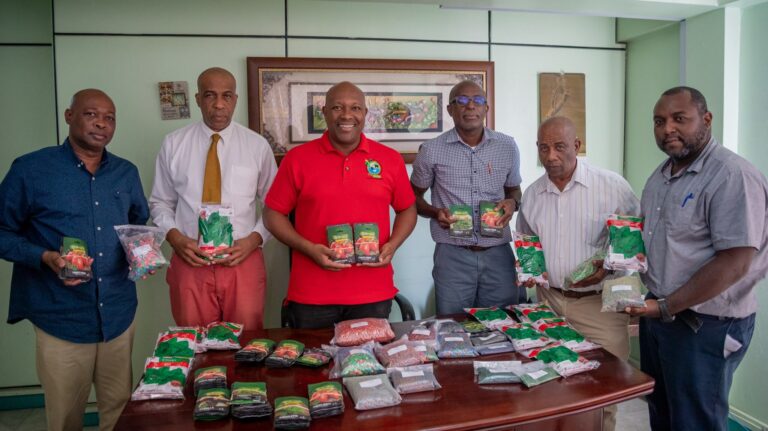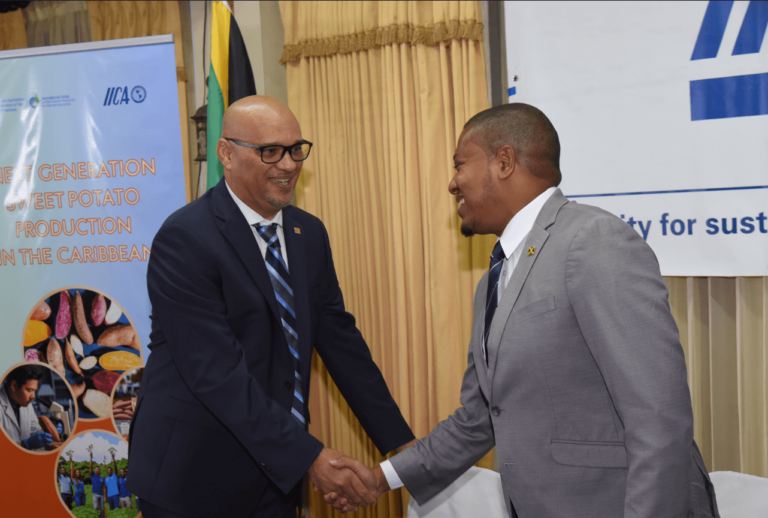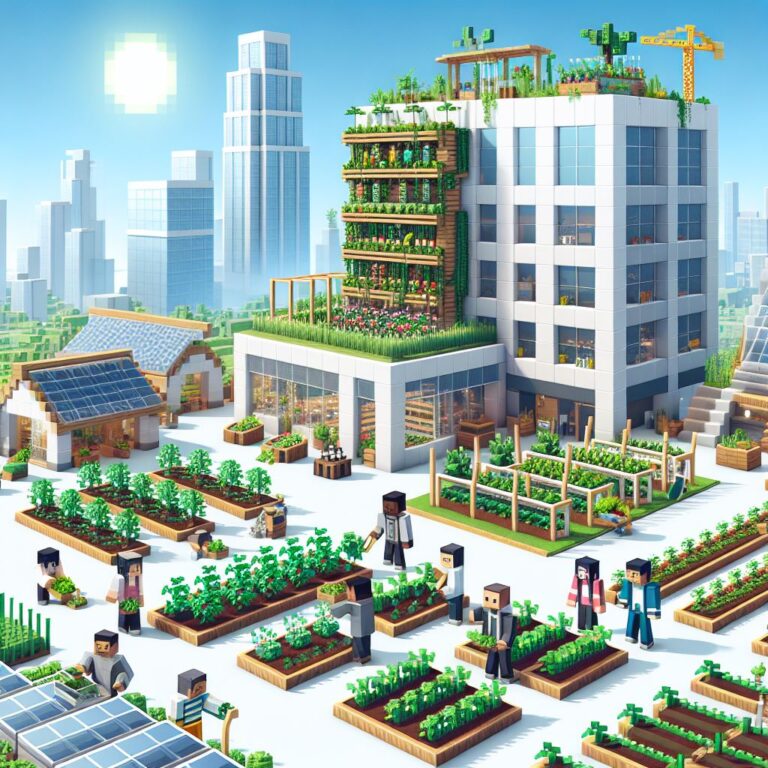The event sought to promote family farming and climate-resilient production in the Americas, stressing that progress in achieving zero hunger will depend on placing the focus on family farmers, who are the sector most vulnerable to climate change.
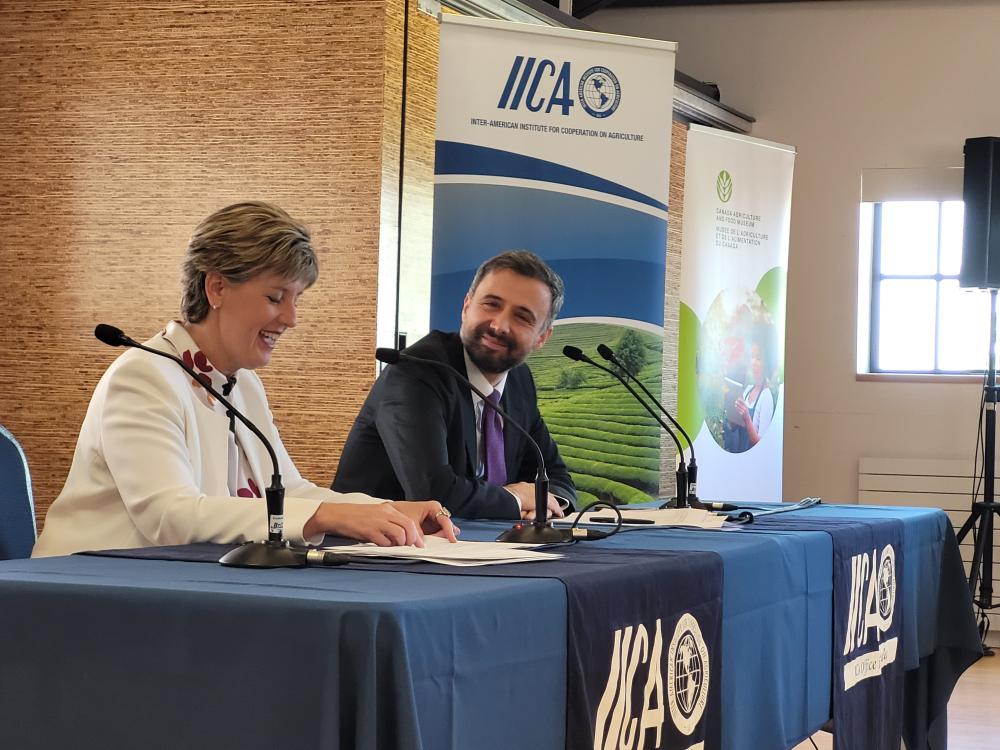
Ottawa, 31 May 2023 (IICA) – The growing food insecurity, fueled by the converging crises affecting humanity, has made science and innovation funding for agriculture more important than ever, with a view to strengthening agricultural resilience.
This was the overall consensus arising from the “Confronting Food Insecurity in the Americas” workshop, attended by representatives of the Canadian Government, members of Canadian farmer associations and authorities of international organizations.
The event sought to promote family farming and climate-resilient production in the Americas, amidst a complex scenario that has seen the world lose ground in its efforts to eradicate hunger.
A warning was issued during the working session, indicating that progress in achieving zero hunger will depend on placing the focus on family farmers, who are the sector most vulnerable to climate change and to economic turbulence.
The workshop’s participants included Marie-Claude Bibeau, Minister of Agriculture and Agri-food of Canada; Álvaro Lario, President of the International Fund for Agricultural Development (IFAD) and the Deputy Director of the Inter-American Institute for Cooperation on Agriculture (IICA), Lloyd Day.
The debate took place at the Canada Agriculture and Food Museum in Ottawa.
Minister Bibeau reflected that, “Within the context of the climate crisis, more than ever we have to recognize the importance of funding projects that will not only increase the resilience of small farmers, but also improve the standard of living of their families”.
Bibeau, who is the first woman in Canada’s history to serve as Minister of Agriculture, stressed the importance of the cooperation provided by IICA, whose work she said was “essential to improving food security in our hemisphere”.
The minister maintained that the time had come to take urgent action to feed the world sustainably, as food security is severely threated by the impact of climate change, which has been further compounded by the fallout from the war in Eastern Europe, affecting food supplies and prices.
She stressed that, “Canada will continue working with its partners to offer immediate solutions to the crisis and to lay the foundation for long-term transformation. We have invested in several projects in the hemisphere. For example, we are funding an initiative to produce more nutritious potatoes in Colombia and investing millions of dollars in Nicaraguan agricultural communities. The aim is to reduce rural poverty and to empower women, who are the most vulnerable group. Investing in them is investing in food security”.
Álvaro Lario, who heads IFAD, a financial institution and specialized agency of the United Nations working to combat hunger in developing countries, also highlighted IICA’s work to assist rural communities.
Lario explained that, “Eighty percent of the world’s poorest live in rural areas and depend on small-scale agriculture for their income and nutrition. It is estimated that family farmers produce one third of the world’s calories; and approximately 70% of the global population is reliant on what these farmers grow”.
As such, the IFAD President insisted that building resilient agrifood systems will depend on small farmers, who must be given access to markets, infrastructure and financial services. “We must transition from subsistence farming to prosperity. Inaction would be extremely costly. Investing in small farmers could rescue millions of people from poverty”.
A heterogenous region
IICA’s Deputy Director General, Lloyd Day, explained that Latin America and the Caribbean is a key region for the food, nutrition and environmental security of the planet, as it accounts for 13% of global food production, 16% of agricultural exports, and is also home to 16% of the world’s arable land and 50% of its biodiversity.
He also stressed the heterogeneity of the region, which has global powerhouses in food production, such as Argentina, Brazil and Mexico, alongside countries in the Caribbean that are net food importers. The Deputy Director General also reflected on the importance of the joint, collaborative and ongoing work by IFAD and IICA, while also praising the role of Canada, in particular its capacity to promote innovative public policies for rural areas and its “inspiring work to foster gender equity in rural areas”.
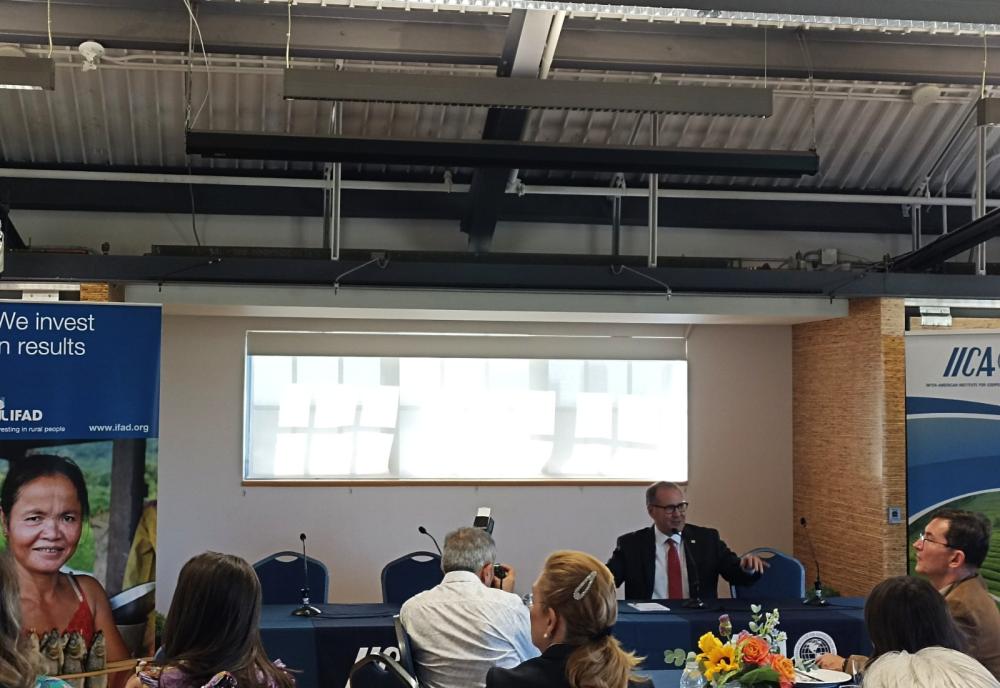
“The Caribbean nations had set themselves the target to reduce food imports 25% by 2025, but the COVID-19 pandemic complicated this process. We must help the Caribbean to become resilient to climate change”, he said.
Day described the value of family farming as paramount, considering that it contributes between 57 and 67% of regional food production and provides a livelihood for 60 million people. “Ironically—he said—in Latin America and the Caribbean, family farmers are the most vulnerable group. In Central America, for example, 60% of them live in poverty and 50% have no access to electricity”.
He stressed that, “There is no reason for hunger or malnutrition in this region, given the immense food supply. We must invest more in science and research for agriculture, as right now we invest very little. Compared to developed countries that invest 2.81 dollars for each 100 dollars produced by agriculture, Latin America invests only one”.
In closing he said, “Agriculture is part of the solution to climate challenges and we must intensify sustainable production. Changes are needed, but they must be science-based and the burden of the costs to do so must not be assumed by farmers”.
More information:
Institutional Communication Division.
comunicacion.institucional@iica.int
